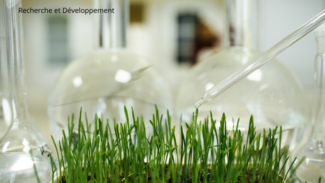R&D

Over the past few years, Microhumus has participated in numerous research programs, both through competitive calls for projects and individual initiatives. These projects are sometimes carried out internally and other times in collaboration with universities or public research organizations. To date, Microhumus has collaborated with 25 universities across Europe and the Middle East.
The results of these efforts may lead to scientific publications, internal valorization, or technology transfers benefiting our clients.
In 2024, Microhumus continues its collaboration with prestigious institutions such as CERN in Geneva, the University of Lorraine, and the Lebanese University. We are also members of the Aragorn consortium (hyperlink), a European Union-funded project aimed at developing a European guide for the restoration of degraded sites.
At Microhumus, Research & Development lies at the heart of our mission to innovate, develop, test, and offer pioneering and sustainable solutions to complex environmental challenges related to soil degradation, while actively contributing to the preservation of soils and biodiversity. We conduct a variety of research programs, either initiated internally or in response to calls for projects or client requests. These projects are often carried out in collaboration with, or on behalf of, renowned academic and scientific partners.
Thanks to our extensive network of partners, we collaborate with over 25 universities across Europe and the Middle East, as well as with public research institutes, on numerous research programs. These collaborations enrich our scientific and operational expertise, placing us at the forefront of scientific advancements in our fields of activity.
Within this framework, we are particularly proud of our current involvement in two major projects:
- The European Horizon ARAGORN project: Funded by the European Union, this project aims to develop a European guide for the restoration of polluted sites (learn more).
- The FCC-OPEN SKY LABORATORY project at CERN: This project explores new ecological approaches for the valorization of excavated materials (learn more).
The outcomes of our research work take various forms:
- Scientific publications,
- Internal valorization for the continuous improvement of our services,
- Technology transfers that directly benefit our clients in the form of:
- Operational solutions,
- Software,
- Decision-support tools.
In 2025, Microhumus continues its collaborations with prestigious institutions such as CERN in Geneva, the University of Lorraine, the University of Picardie, the University of Copenhagen, and the Lebanese University, while strengthening its commitment to European and international projects.
Our R&D expertise is reflected in a diversified service offering, including:
- Developing solutions for managing degraded or low-fertility soils using materials from the circular economy.
- Designing sustainable water management solutions for arid and semi-arid areas by combining improved soil water retention through organic and mineral amendments and reducing runoff losses.
- Identifying and evaluating innovative plant-based strategies for ecological restoration and agroecology (renaturation of grasslands, forests, agricultural and vineyard plots).
- Developing innovative agroforestry solutions adapted to local contexts to regenerate and restore degraded soils in arid and semi-arid zones, transforming them into fertile and productive land while preserving local forests.
- Developing and optimizing phytotechnologies for managing soils contaminated by various pollutants (PFAS, heavy metals, hydrocarbons, etc.).
- Analyzing the impact of developed solutions on soil fertility, crop quality, and associated ecosystem services (carbon storage, water retention, biodiversity conservation, erosion reduction, etc.).
- Creating tools based on artificial intelligence (AI) to optimize soil management and preserve water resources, improve agricultural practices, assess and predict carbon storage, and combat climate change.
Our goal is to continue innovating to address environmental challenges while providing our clients with concrete and sustainable solutions.
Join us in our commitment to resilient soils and ecosystems!